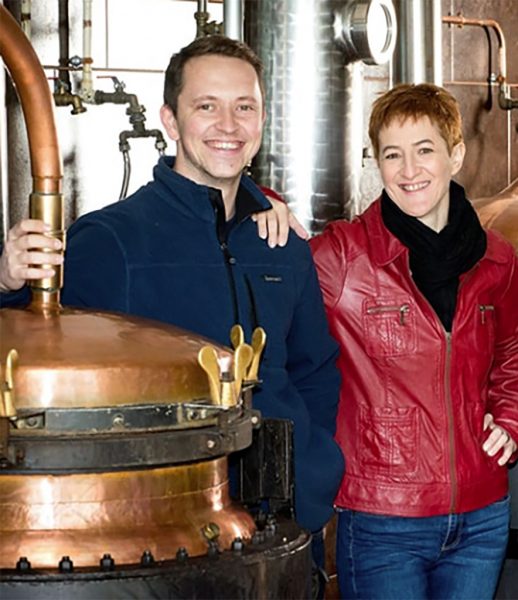Distillerie Mette
France once had a policy whereby owners of fruit trees were allowed to distill twenty liters of alcohol at 50% ABV without having to pay tax. Most people living in the country had pear and plum trees whose bounty they would ferment after the harvest then bring to the town square in the fall where a travelling distiller would pass it through his alambic still and convert it into alcohol. This alcohol served as the basis for homemade apéritifs, the preservation of pruneau, or as after-dinner digestifs.
While the production of eau-de-vie was once widespread all over France, many of the specialists are now based in Alsace, and this region along the French/German border has become the country’s most highly regarded eau-de-vie region. Fruit trees are abundant, and the distillation of stone fruits dates back several centuries.
Jean-Paul Metté grew up in one of these orchard-abundant Alsatian villages, Ribeauvillé, with distilled pear and kirsch stored in bottles of various sizes around the house. In fact, the village distiller in Ribeauvillé lived just up the road from his parents’ house. Jean-Paul would hang out with the old man while he distilled, passing the winter months warmed by the fire of the alambic while slowly learning the art of distillation. He eventually learned what base materials would create the most concentrated, flavorful distillates.
In the 1960s, Jean-Paul decided to purchase an alambic and set off on his own. He scoured the Alsatian countryside and contracted the fruit from trees of local farmers. He took care to collect the fruit from the ground in small, wooden boxes and then let them further ripen in the dry, open air. The fruit was fermented with no added sugar or concentrate and only with its natural yeast. In the distillery, Metté felt most comfortable in front of his alambic as the colorless, aroma-rich eau-de-vie trickled from the still. “Everything comes alive when you are distilling,” he said. “If you don’t put your heart and soul into it, the results are worthless.”
Without a son to take over his craft, Metté began passing on the art of distilling to his godson Philippe Traber in 1985. In 1997, Metté’s health went into decline and Philippe and his wife, Nathalie, purchased the distillery to carry on Jean-Paul’s work and traditions. Today, helmed by their son, Timothée, the spirits of Distillerie Metté are renowned throughout the world thanks to the extremely wide range of eaux-de-vie produced (they distill over 88 expressions) and, above all, their exceptional quality.




